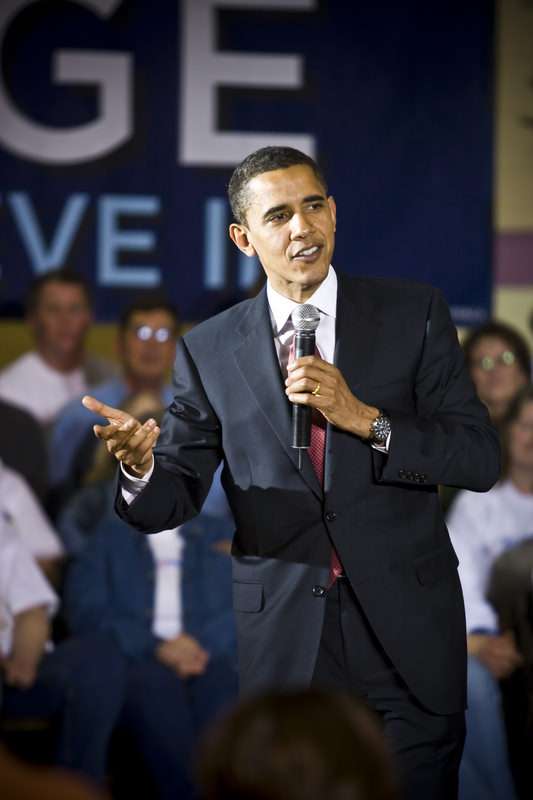SOTU Pivot to Jobs and the Economy Means More Talk About Raising Taxes, Blaming Republicans, and Not Reducing Government Spending

In tonight's State of the Union address, some reporting has suggested that President Obama will pivot to a focus on "jobs and the economy" (again). In practical terms, what that apparently means is an all-too-familiar focus on government spending, as well as setting the stage to blame Republicans if the economy takes another dive. So reporteth The Hill:
President Obama will use his State of the Union speech Tuesday to turn public opinion against automatic spending cuts and argue that some of the money to replace the cuts should instead come from higher taxes.
He will use the prime-time TV address to argue the economy would be damaged if $85 billion in automatic spending cuts were to go ahead on schedule on March 1, and will seek to set up Republicans to take the blame if they do.
For a laugh-filled trip down memory lane, it's always fun to go back and look at what Obama said about deficits before he was president: "You don't have to be a deficit hawk to be disturbed by the growing gap between revenues and expenses," he said in 2005, when the deficit was less than $250 billion (the CBO's most recent estimates put this year's deficit at around $850 billion). In his 2006 book The Audacity of Hope, Obama lamented not only the deficit levels of the Bush years, but the out of control spending that helped produce those deficits:
We were told by our President that we could fight two wars, increase our military budget by 74 percent, protect the homeland, spend more on education, initiate a new prescription drug plan for seniors, and initiate successive rounds of massive tax cuts, all at the same time. We were told by our congressional leaders that they could make up for lost revenue by cutting out government waste and fraud, even as the number of pork barrel projects increased by an astonishing 64 percent.
The result of this collective denial is the most precarious budget situation that we've seen in years. We now have an annual budget deficit of almost $300 billion not counting more than $180 billion we borrow every year from the Social Security Trust Fund, all of which adds directly to our national debt. That debt now stands at $9 trillion—approximately $30,000 for every man, woman, and child in the country.
A few sentences later, the younger Obama offers a warning:
We've been able to get away with this mountain of debt because foreign central banks—particularly China's—want us to keep buying their exports. But this easy credit won't continue forever. At some point, foreigners will stop lending us money, interest rates will go up, and we will spend most of our nation's output paying them back.
Today, the budget situation is far more precarious. After four years of trillion-dollar-plus deficits, the debt stands at $16.4 trillion. In 2012, the federal government spent about $3.5 trillion, about $600 billion more than it spent in 2007, and spending is projected to rise in real dollars over the next decade even if the sequester cuts Obama is warning against go through. Even with this year's somewhat lower deficit, we'll continue adding to the debt, and continue adding to the amount we pay in debt service, bringing us a little closer to the potential credit crisis that the 2006 Obama warned about.
Yet Obama is also expected to follow up on an argument he made this weekend, that we've already done most of the debt and deficit reduction that's necessary.


Show Comments (14)